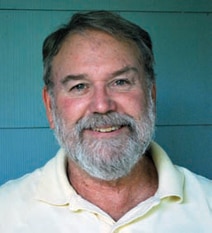
I have always been fascinated by seeds. Why? They are bursting with such potential! As each unique seedling, flower or plant unfolds, it often surprises us with its beauty, complexity, and ability to be fruitful. Whether germinating or dormant, seeds must have the right conditions to set them on their journey. And so it is with those of us who are now poised to prosper, waiting for a favorable moment to make our mark in our city, our nation and beyond. We are the seeds of hope for a world that has yet to recognize its true potential.
Sound like a stretch? I don’t think so. The general public makes the mistake of thinking that only certain people with disabilities are remarkable, that a small percentage of us somehow survives very limiting circumstances to do remarkable things. They are missing the overarching universals, the one that includes all of humanity, and no one is better at seeing the bigger picture than Stephen Hawking, who describes our potential with uncommon authority: “Perhaps it is human nature to adapt and survive.”
Not only is each form of disability unique, each disabled person is a unique expression of that disability, and the potential that lies latent in all of us, disabled or not, is tied to resilience. “There is no such thing as a standard or run of the mill human being. We are all different,” says Hawking. “What is important is having creative intelligence …”
The ability to create is another critical component of our potential for resilience. And by “our,” I mean all humans. Those of us who deal with a serious disabling condition may have an additional burden, but it is the weight of that burden that drives us to search out inventive ways of adapting and surviving. After endless trial and error, we often succeed, and from engaging in that process repeatedly, we nurture our individual resilience.
Still not convinced? Think of what separates human beings from other species. You might think it is our brain size, brain-to-body-mass ratio or overall number of neurons in our brains, but these kinds of numerical comparisons do not describe our real uniqueness — what most emphatically separates us from other species: imagination!
Imagination is yet another way of describing our ability to to create or be resilient. When did mankind first dream of traveling to outer space? No doubt hundreds, possibly thousands of years ago. Finally, after scores of generations, we stand at the threshold of space travel. What other species has the ability to adapt to this extent — to imagine a future — and then make it happen? Dolphins, spiders, monkeys and pigeons are intelligent, but will they ever explore a distant planet? Only if we take them there and create a hospital environment for them.
Potential — to adapt, to create, to imagine, to be resilient — all are human traits that people with disabilities must use to transcend our daily limitations. Like seeds, all we need are favorable conditions.
Support New MobilityWait! Before you wander off to other parts of the internet, please consider supporting New Mobility. For more than three decades, New Mobility has published groundbreaking content for active wheelchair users. We share practical advice from wheelchair users across the country, review life-changing technology and demand equity in healthcare, travel and all facets of life. But none of this is cheap, easy or profitable. Your support helps us give wheelchair users the resources to build a fulfilling life. |


Recent Comments
Bill on LapStacker Relaunches Wheelchair Carrying System
Phillip Gossett on Functional Fitness: How To Make Your Transfers Easier
Kevin Hoy on TiLite Releases Its First Carbon Fiber Wheelchair